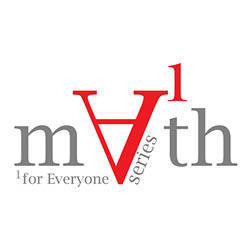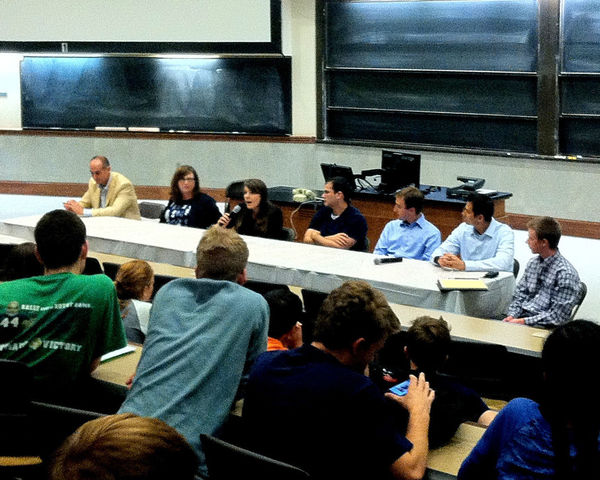

This past Thursday (Oct. 10) at the Math for Everyone lecture series, six presenters joined a panel discussion on what to do with a mathematics degree after graduating from Notre Dame.
The panel featured individuals with careers in education and industry, and included five Notre Dame alumni.
John Ahlgrim is a superintendent for the Zion School District in Zion, Ill. Although Ahlgrim’s career is not directly related to math, it has led him to “work for kids and invent a promising future.”
Sarah Denman is currently an analyst at dunnhumbyUSA. Prior to working at dunhumby, she taught statistics and mathematics at Miami University in Ohio. Michael Jenista and Ryan Kiefer are also analysts who work for SAS and Deloitte, respectively. Jenna Donahue, a 2012 graduate and the youngest panelist, is currently an advisory associate for PricewaterhouseCoopers. Lastly, Craig Thompson is a retirement analyst at Towers Watson Consulting.
“One of the most beneficial aspects of this event was the question and answer session in which students were able to pose questions either to the panel as a whole or to specific panelists,” said Bernard Gray, the undergraduate student who moderated the panel.

Students at the discussion posed questions such as:
- Which math skill has been most beneficial in your career?
- What math class was the most beneficial during your undergraduate years?
- What are your opinions on pursuing math in graduate school?
- What piece of advice would you give to freshmen or sophomores who are pursuing math degrees but don’t know what to do with them?
- Do you find yourself using more computational math skills or problem solving skills?
- Is the research experience necessary if you’re planning on applying to grad school?
Although every panelist answered the questions differently, they all stressed the fact that the pursing a math degree taught them how to problem solve and use critical thinking skills.
“In the field, we’re in we need of people that can think. In an educational system where so much is focused on memorization, you need critical thinking skills, and math and statistics will do that for you,” said Denman.
Although not all the panelists pursued graduate studies in math, they offered different schools of thought about further education in math.
“I’m a big fan of master’s degrees. I believe you’re still in your undergraduate discovery years right now. Once you’re working, it’s harder to go back [to school].” said Denman.
Ahlgrim, however, felt that “it’s helpful to figure out what you actually want to do before you pursue other education,” which is what he discovered by working for a couple of years after graduating with his bachelor’s degree.
Freshman finance major Elle Steichen who was in attendance is currently contemplating declaring a math major. “Knowing that these panelists have all benefited from their math major gives me even more of an incentive to pursue the major; listening to their insights and learning more about the diverse fields they’ve gone into was extremely helpful,” she said.
To close the discussion Thompson advised students to “come to these forums and learn about the different professions you can do with math degrees,” and to “not wait until you’re a junior or senior to make connections.”
Math for Everyone is a series of math-related talks, specifically for undergraduates. The next Math for Everyone talk, “A Glimpse of Soliton Theory,” will be held Thursday, November 7, 2013 at 5:00 p.m. in 101 Jordan Hall. All undergraduates are welcome to attend.